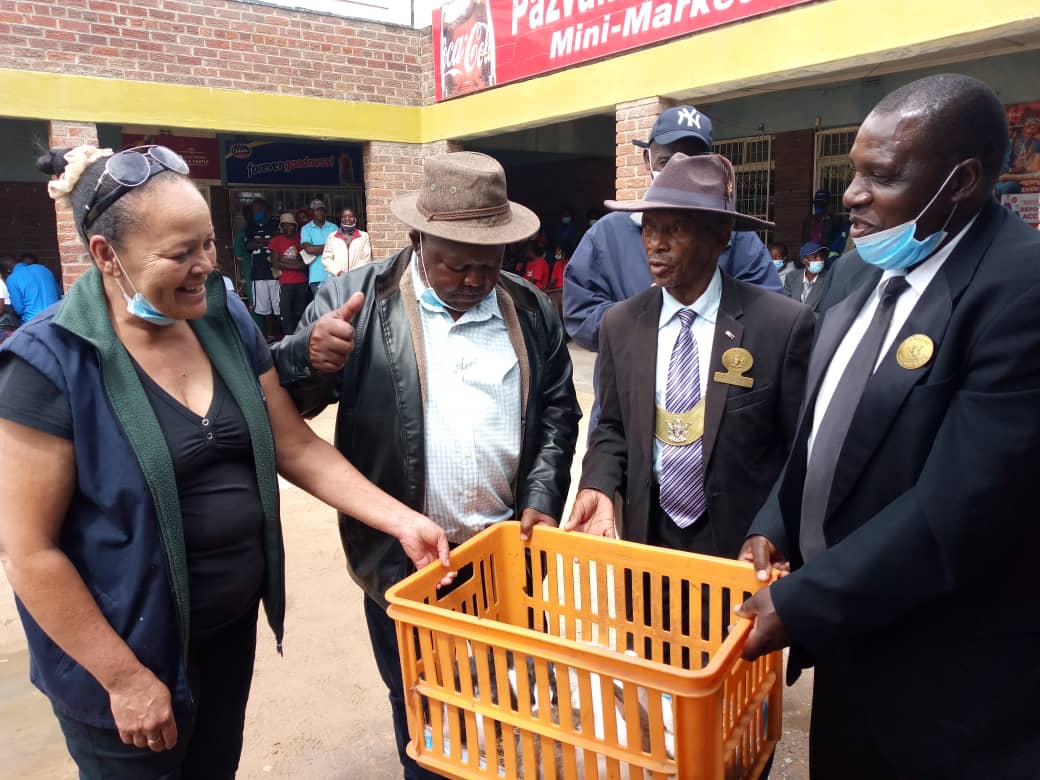|
Getting your Trinity Audio player ready…
|
By Tendai Guvamombe
Communities in Goromonzi South have embraced rabbit farming with a view of addressing poverty. This follows the launch of the initiative by James Samhembere, the ZANU PF Secretary for Indigenous and Economic Empowerment in the area.
Goromonzi South is located in the periphery of the capital city Harare and is under the jurisdiction of Chief Rusike.
Community leaders, women, and youth who constitute a sizeable number to contain the spread of COVID-19 converged at Mutangadura Shopping Centre where the initiative was unveiled.
Speaking during the occasion, James Samhembere said the project is expected to transform the livelihoods of the local people in a number of ways.
“We have realized that people in our local community can see opportunities in rabbit farming which is among farming projects that have the potential to transform the livelihoods of the local people. The project is easy to initiate, implement and make profits within a small period of time.”
Samhembere capacitated the local community on the steps that are taken to start rabbit farming. This includes housing, stock supplements, and market issues.
Wisdom Nyirenda, another successful rabbit farmer also capacitated the local community with knowledge on rabbit farming. Speaking to this publication, Nyirenda said rabbit farming is expected to increase in Goromonzi in the next six months.
“We are determined to provide technical support for the local community and we are expecting an increase in rabbit farming among communities in the next six months.”
Addressing the gathering, Chief Rusike, born Aaron Muchenje, endorsed rabbit farming in his area saying the programme will go a long way in bringing economic development.
“We are so excited to have such a good project in our community. This will help families sustain their livelihoods. This will also help women and youth to be economically empowered.”
In a separate interview, Last Pfumisai, ZANU PF’s Chairlady in Kaguvi district expressed excitement in the initiative saying the project came as an eye-opener to women and young people.
“We did not know that we can make money out of rabbit farming. We have been capacitated with the knowledge on how to start a small project. We have been also told that the project is easy to start and implement. This is what most women and young people have been waiting for.”
